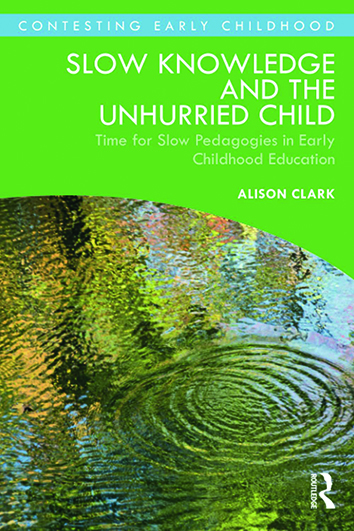
 There may be many reasons why young children can find their time in early childhood education and care divided into shorter and shorter fragments of play. This was one of the contrasts Mary Jane Drummond noticed in her reflections (2000) on reading the detailed accounts by Susan Isaacs about Malting House school: ‘In comparison with the primary classrooms where I have taught in the past and regularly observe today, there was no time wasted in the business of forming into lines, waiting in lines, completing the registers, collecting lunch money, searching for PE equipment – all the events that add up to evaporated time. All the available time was available for the children, not for the teachers’ routines; it was filled with the children’s dramatic, vivid lives.’
There may be many reasons why young children can find their time in early childhood education and care divided into shorter and shorter fragments of play. This was one of the contrasts Mary Jane Drummond noticed in her reflections (2000) on reading the detailed accounts by Susan Isaacs about Malting House school: ‘In comparison with the primary classrooms where I have taught in the past and regularly observe today, there was no time wasted in the business of forming into lines, waiting in lines, completing the registers, collecting lunch money, searching for PE equipment – all the events that add up to evaporated time. All the available time was available for the children, not for the teachers’ routines; it was filled with the children’s dramatic, vivid lives.’
Register now to continue reading
Thank you for visiting Nursery World and making use of our archive of more than 35,000 expert features, subject guides, case studies and policy updates. Why not register today and enjoy the following great benefits:
What's included
-
Free access to 4 subscriber-only articles per month
-
Unlimited access to news and opinion
-
Email newsletter providing activity ideas, best practice and breaking news
Already have an account? Sign in here









